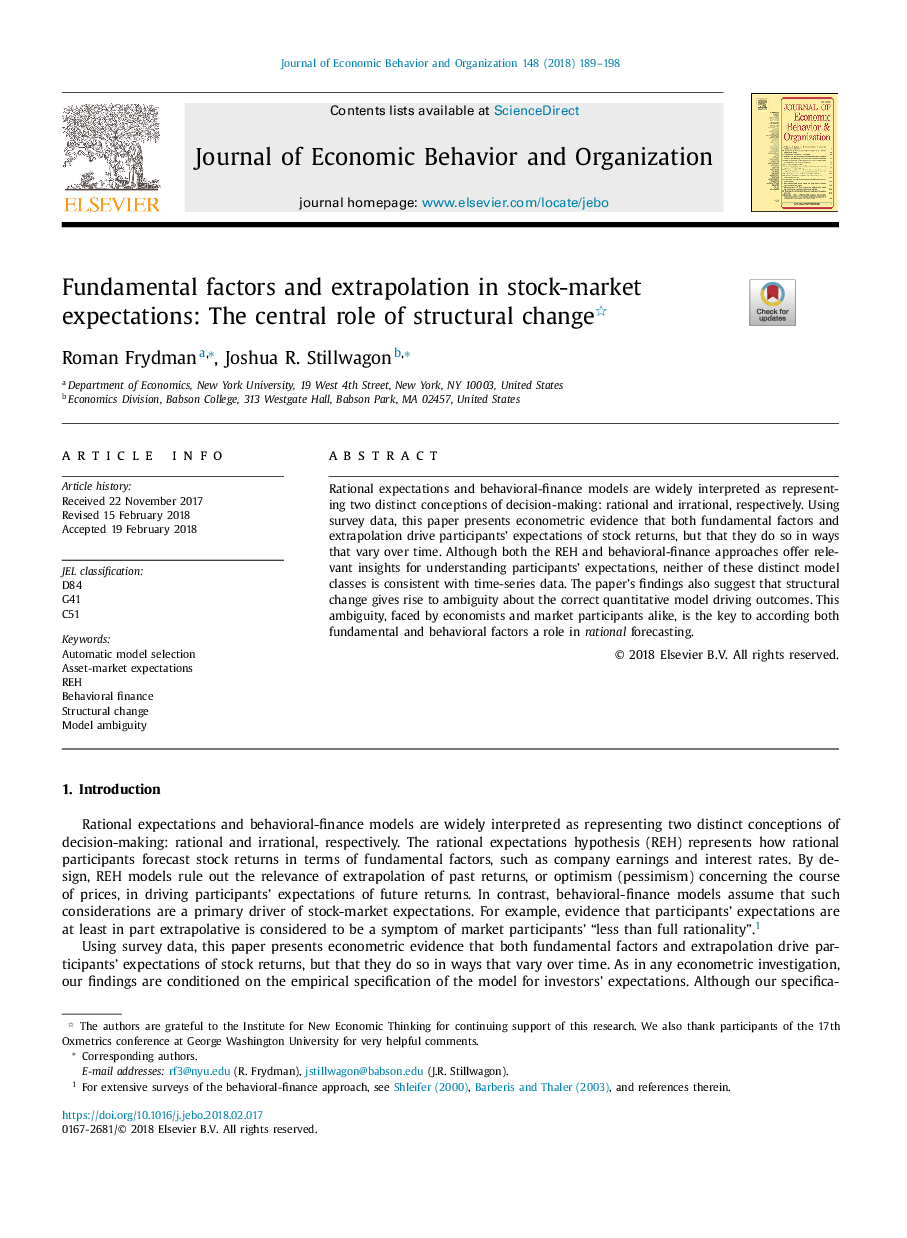| Article ID | Journal | Published Year | Pages | File Type |
|---|---|---|---|---|
| 7242620 | Journal of Economic Behavior & Organization | 2018 | 10 Pages |
Abstract
Rational expectations and behavioral-finance models are widely interpreted as representing two distinct conceptions of decision-making: rational and irrational, respectively. Using survey data, this paper presents econometric evidence that both fundamental factors and extrapolation drive participants' expectations of stock returns, but that they do so in ways that vary over time. Although both the REH and behavioral-finance approaches offer relevant insights for understanding participants' expectations, neither of these distinct model classes is consistent with time-series data. The paper's findings also suggest that structural change gives rise to ambiguity about the correct quantitative model driving outcomes. This ambiguity, faced by economists and market participants alike, is the key to according both fundamental and behavioral factors a role in rational forecasting.
Related Topics
Social Sciences and Humanities
Economics, Econometrics and Finance
Economics and Econometrics
Authors
Roman Frydman, Joshua R. Stillwagon,
